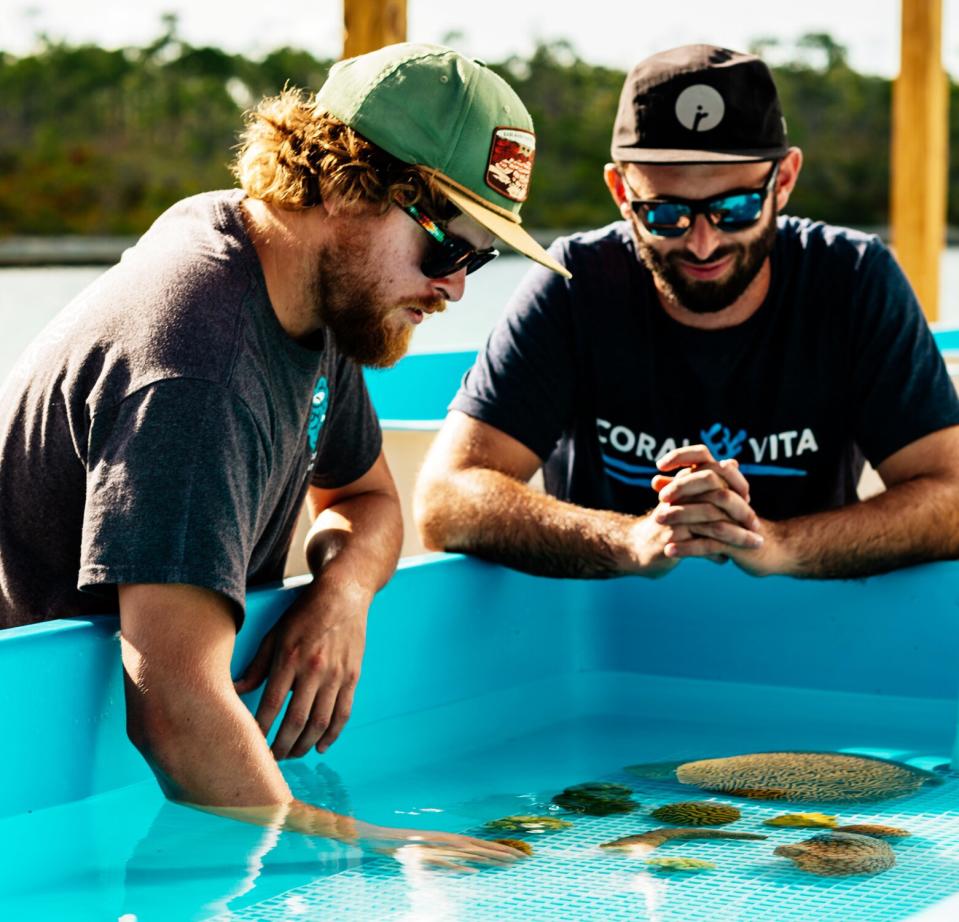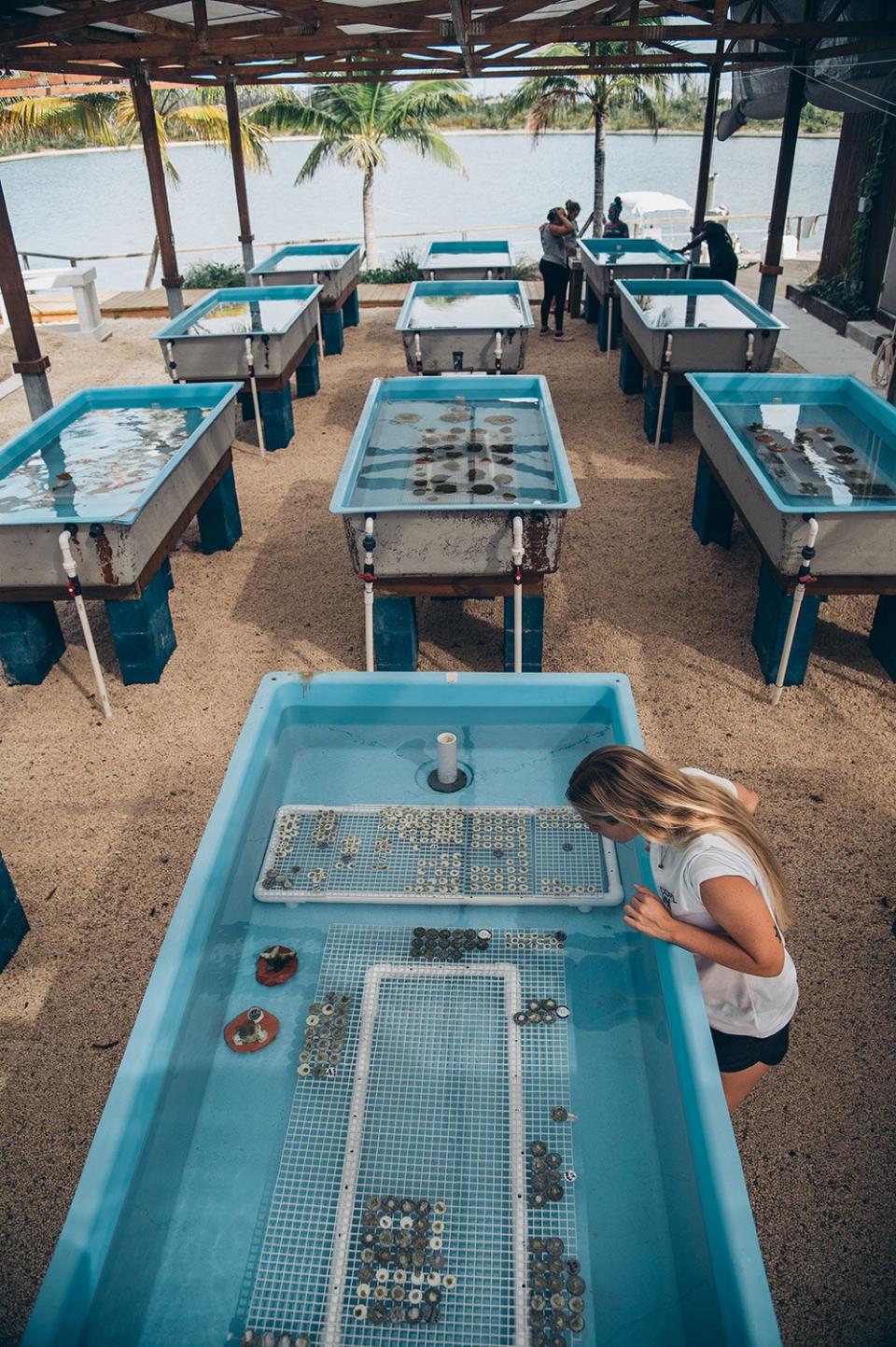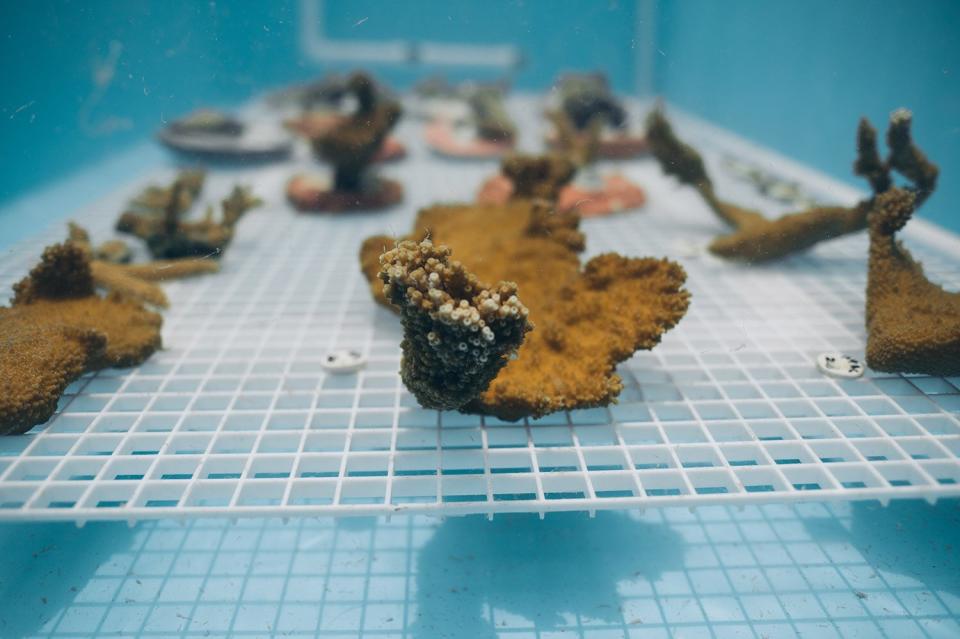Prince William's Earthshot Finalist on Why the Prize 'Resonates So Deeply with the Younger Generation'

Erica Wilson Studio Silverback Prince William
"This is where the magic happens," a proud Sam Teicher says as he takes a quick FaceTime video tour of the tanks where he and colleague Gator Halpern grow coral.
Their farm in the Bahamas is at the forefront of efforts to restore blighted coral reefs both in the Caribbean and ultimately, they hope, around the world.
The friends met in grad school where they bonded over a love for the oceans and sea. Now, years later, they've been recognized by Prince William's Earthshot Prize, which hopes to supercharge environmental innovation over the next decade by finding, rewarding and helping to scale up solutions to the climate crisis.
Teicher and Halpern's company, Coral Vita, is one of 15 finalists awaiting Sunday's inaugural Earthshot Prize ceremony, when five winners will each receive $1.3 million advance their work.
Halpern praises William — who was inspired by U.S. President John F. Kennedy's wildly ambitious Moonshot initiative from the 1960s — for making a bold, urgent commitment to repair the planet.
"It's really inspiring to have a world leader of his stature put his energy and passion and focus to a movement that I think resonates so deeply with the younger generation," he tells PEOPLE.
"Sam and I have known since we were teenagers that we wanted to devote our lives to the environmental movement," he says. "And this award is an incredible way to really elevate the conversation around climate destabilization and use the influence that Prince William and really the rest of the prize council has to show how important issue this is."

In keeping with the ethos of the prize, Teicher and Halpern's brainwave started small — when they were students pondering how they could make a difference. "It kind of started on our back porch, drinking beers and talking about how we can try to make coral farms," Halpern explains.
When he was growing up in San Diego, California, Halpern spent "as much time as I could growing up on the beach and in the waves." He says he had been working in research projects but felt he "more, like, writing the obituary of these ecosystems" than helping them survive and thrive.
So he decided — along with Washington, D.C., native Teicher, whose love of the sea was born when he was taken scuba diving by his parents — to take the plunge and try "something more entrepreneurial to try to address these issues more directly, that we really don't have much time to address."
The statistics are scary. The pair say that half of the world's reefs are already dead, and scientists project that more than 95% of the world's reefs will be gone by 2050.
But after working with leading research institutes to build what they say is one of the most high-tech coral farms, they believe the solution will be to restore the reefs by growing corals in ways that also make them more resilient. They are also able to do so at much faster rates than they would grow back in the wild.
Notes Teicher, "We have seen some good success on initial test out plants where you're already seeing marine life returning some of these areas."

harry lee/coral vita
Winning the Earthshot Prize (they're in the Revive Oceans category) would enable them to scale up and increase the impact they can have.
"We obviously would love to win the prize, but we certainly count ourselves as winners regardless," Teicher tells PEOPLE. "This is an absolutely incredible community. The other finalists are so inspiring. We're already thinking about the synergies that exist between us all and the different partners within the Earthshot community."
He notes that Earthshot is already having an impact in its first year of the decade William has committed to the project.
"There are a lot of people talking about Earthshot and these solutions and the other solutions out there," says Teicher. "We hope this is a way to put a spotlight on coral reefs as well as the hard work of so many scientists and local community leaders working to protect reefs around the world. There are millions of eyes on the television show, there's more to come once the prize is announced and it's 10 years into the future that they're keeping to this. The little I know from sitting here in Grand Bahama there's already good progress being made because of Prince William."

harry lee/coral vita
But, as the pair say, the best thing for the reefs would be to stop killing them off in the first place with pollution and climate change.
"Restoration isn't a silver bullet," Teicher insists. "We still need to solve climate change too."

 Yahoo News
Yahoo News 
